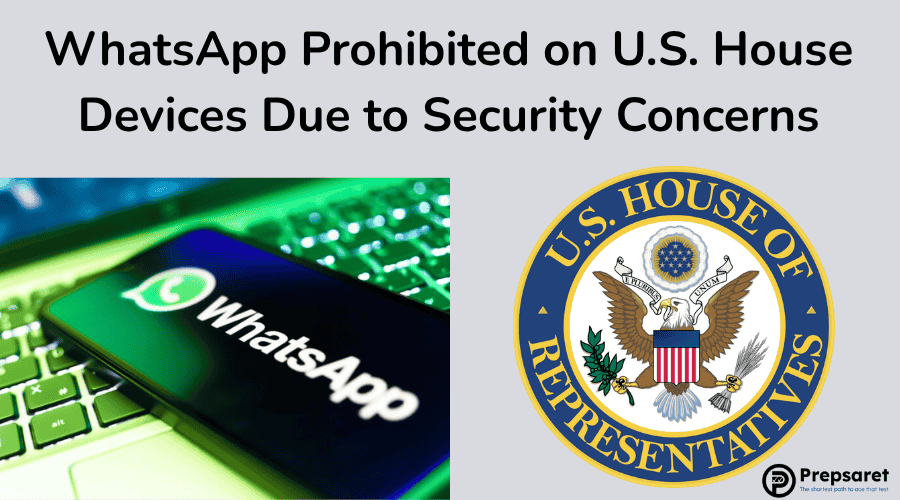The U.S. House of Representatives has officially banned the use of WhatsApp, the messaging platform owned by Meta Platforms, from all government-issued devices. The decision was announced in a memo distributed to House staff on Monday by the chief administrative officer.
The ban follows an assessment by the Office of Cybersecurity, which labeled WhatsApp a significant security liability.
The memo stated that WhatsApp presents “a high risk to users due to the lack of transparency in how it protects user data, absence of stored data encryption, and potential security risks involved with its use.” Staff were advised to discontinue using the app immediately.
Related story: Cybersecurity News
Alternatives Recommended Amid Growing Digital Threats
To ensure secure communication, House employees were urged to switch to other messaging platforms that meet internal cybersecurity standards.
Suggested alternatives include Microsoft Corp’s Teams, Amazon.com’s Wickr, Signal, and Apple’s iMessage and FaceTime. These tools are viewed as offering more reliable data protection and transparency.
Meta voiced strong opposition to the ban. “Meta disagreed with the move ‘in the strongest possible terms,’” a company spokesperson said, defending WhatsApp’s encryption protocols and arguing that the app delivers “a higher level of security than the other approved apps.”
Concerns about WhatsApp’s vulnerabilities are not new.
Earlier this year, a WhatsApp official revealed that Israeli spyware firm Paragon Solutions had targeted numerous users, including journalists and members of civil society, raising alarms over the platform’s ability to resist surveillance.
The move reflects a broader pattern of increased scrutiny over digital tools used within the federal government. In 2022, the House also prohibited TikTok from staff devices, citing security concerns related to data access and foreign influence.
This latest action demonstrates a continued effort by the House to strengthen its cybersecurity posture and minimize risk exposure.
By limiting the use of apps with questionable data protection practices, lawmakers aim to safeguard sensitive government information and promote secure digital communications across all departments.
Read next: Tesla Debuts Paid Robotaxi Service in Austin Amid New State Oversight

